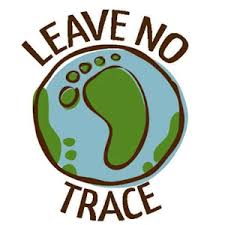
As lovers of the great outdoors, it’s our responsibility to preserve and protect the natural beauty that surrounds us. In this blog post, we’ll explore the principles of environmental responsibility while camping and RVing, highlighting ways we can minimize our impact on the environment and leave our favorite destinations as pristine as we found them.
- Follow Leave No Trace Principles
- Leave No Trace (LNT) principles, pack it in, pack it out, leave what you find, minimize campfire impacts, respect wildlife, and be considerate of other visitors.
- Choose Sustainable Campsites
- Stay at designated campsites, avoid creating new campsites, respect campground regulations, minimize habitat disturbance, and camp on durable surfaces.
- Practice Responsible Waste Management
- Properly dispose of trash and recycling, use designated trash receptacles, avoid littering, pick up any trash left behind by others, and consider composting food waste.
- Conserve Water and Energy
- Practice water conservation techniques, use water-saving appliances and fixtures, turn off lights and electronics when not in use, and utilize solar power where possible.
- Reduce Carbon Emissions
- Minimize driving distances, carpool when possible, use fuel-efficient vehicles or RVs, and consider offsetting carbon emissions through carbon offset programs.
- Use Eco-Friendly Camping Gear
- Choose sustainable and eco-friendly camping gear made from recycled materials, opt for biodegradable cleaning products, and avoid single-use plastics.
- Respect Wildlife and Natural Habitats
- Observe wildlife from a distance, avoid feeding animals, respect their natural behavior, and stay on designated trails to minimize habitat disturbance.
- Practice Leave No Trace Campfire Ethics
- Follow campground regulations regarding campfires, use existing fire rings when available, only burn local firewood to prevent the spread of invasive species, and fully extinguish fires before leaving.
- Support Conservation Efforts
- Volunteer for local conservation projects, donate to environmental organizations, and educate others about the importance of environmental stewardship.
- Lead by Example
- Set a positive example for fellow campers and RVers by practicing responsible environmental behaviors, and encourage others to do the same.
By embracing the principles of environmental responsibility while camping and RVing, we can minimize our impact on the environment and ensure that future generations can continue to enjoy the beauty of the great outdoors. Let’s leave our campsites and RV parks better than we found them, and inspire others to do the same. Together, we can make a difference in preserving our planet for generations to come.
